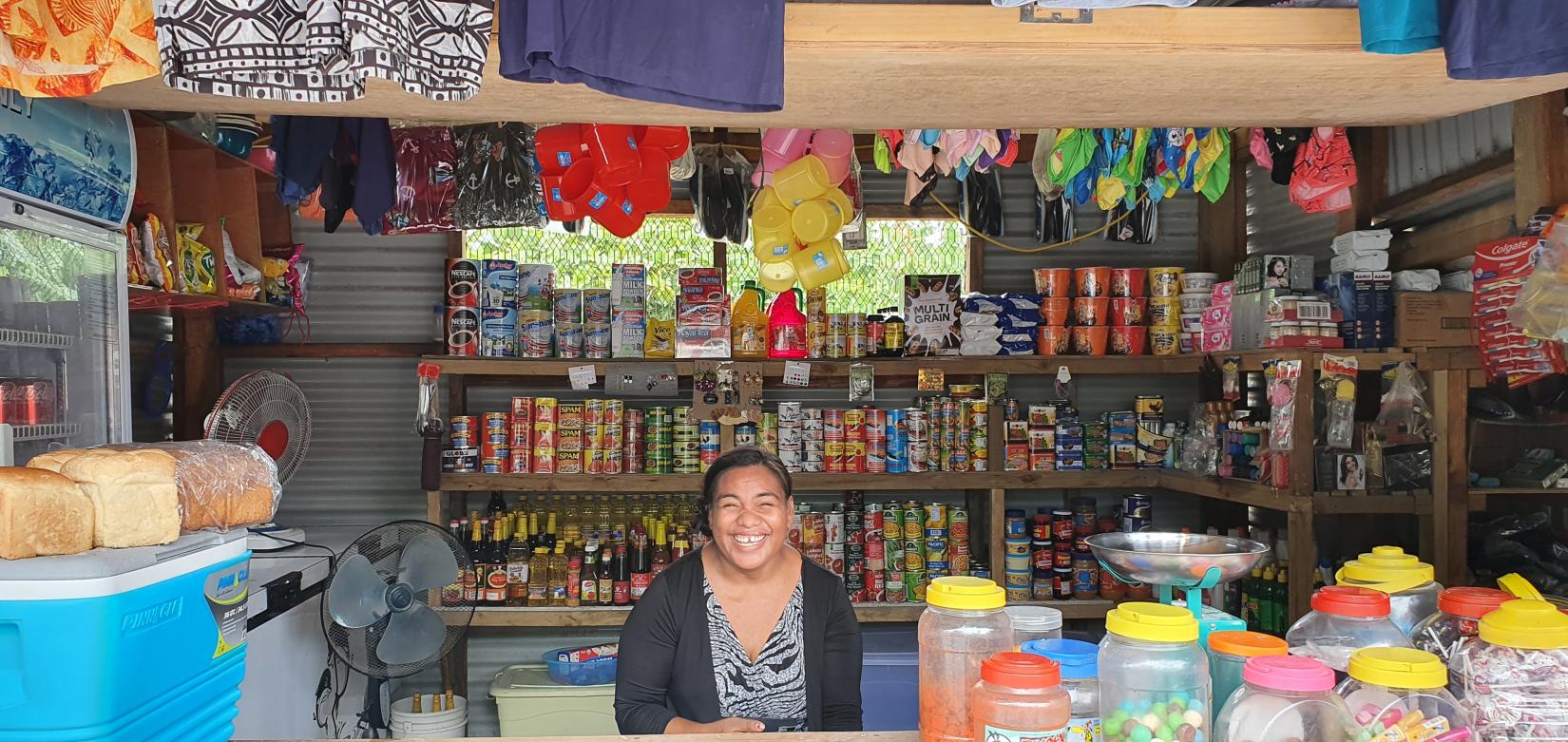Republic of Kiribati

The United Nations in Kiribati
Kiribati is comprised of 32 low-lying atolls and the raised phosphate island of Banaba, totalling 811 sq. km of land over 3.5 million sq. km of ocean. Kiribati has three groups of islands: Gilbert, Phoenix and Line; with a population of 117,606 people (World Bank, 2019). Kiribati’s capital Tarawa is one of the most densely populated areas in the world, home to around half of Kiribati’s total population.
Kiribati is one of the least developed countries in the region with widespread inequality and hardship, and incidences of extreme poverty. High population growth and increasing urbanisation have placed additional pressures on water, sanitation and housing. Kiribati has the lowest access to clean water and sanitation in the Pacific. Kiribati’s small economy is highly exposed to external shocks and debt stress; with a strong reliance on development assistance, fishing licence revenues and overseas remittances. Kiribati is particularly vulnerable to the impacts of climate change and rising sea levels.
Kiribati has a mixed record on promoting gender equality, despite ratifying The Convention on the Elimination of all Forms of Discrimination Against Women. In traditional Kiribati culture, women are subordinate to men and stark gender inequalities persist in almost all aspects of life. Women’s political participation is limited, with four women national Members of Parliament. More than two in three women report experience of gender-based violence.
UN presence in Kiribati
The Republic of Kiribati became a member of the United Nations in 1999. UN has been present in Kiribati since 1984 with fifteen agencies implementing programs: FAO, IFAD, ILO, OCHA, OHCHR, UNAIDS, UNDRR, UNESCO, ESCAP, UNCDF, UNDP, WHO, UN Women, UNICEF and UNFPA. UN agencies based in Kiribati include FAO, IOM, UNDP, UN Women, UNICEF, UNFPA and WHO.
Development goals and objectives
The UN Sustainable Development Cooperation Framework (UNSDCF) 2023 - 2027 is a five-year strategic framework that outlines the collective response of the UN system to the development priorities in 14 Pacific Island countries and territories, including Kiribati, and supports governments and peoples in the Pacific to advance a localised response to the global 2030 Agenda for Sustainable Development. The UNSDCF 2023-2027 focuses on strengthening partnerships to support countries in four interlinked areas of Planet, People, Prosperity, and Peace, to ensure that no one is left behind, that people are equal and free to exercise their fundamental rights, to promote gender equality and peace, and to enable nations and their communities to become resilient to existential threats allowing them to live in harmony within the blue continent.

